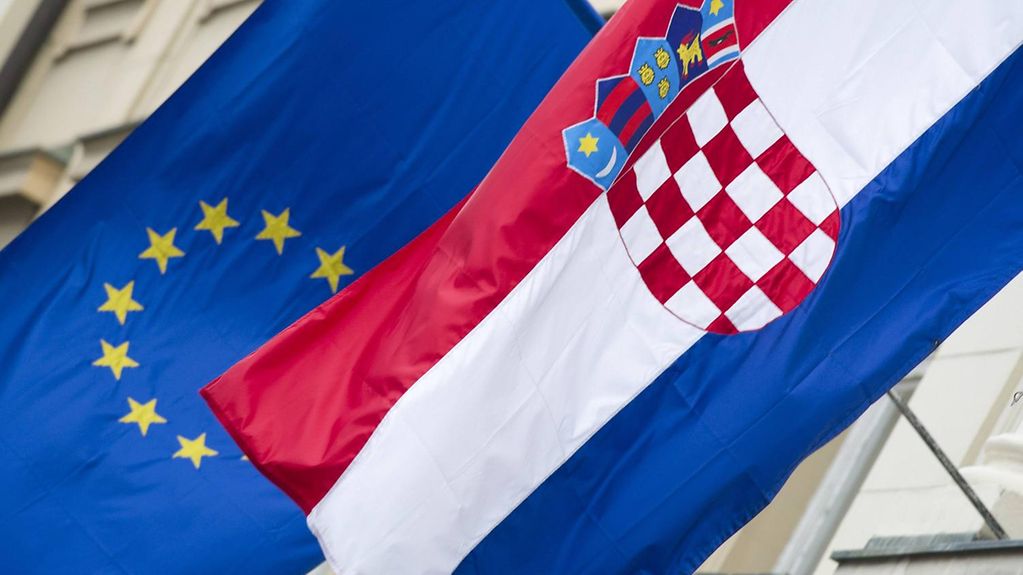European Union
On 1 January Croatia took over the rotating six-month Presidency of the Council of the European Union. Its motto is "A strong Europe in a world of challenges". Important focuses include growth and employment, traffic and transport, energy and digital affairs, and migration.
3 min reading time

Croatia, the EU's youngest member state, took over the Presidency of the Council of the EU as of January 2020
Photo: imago stock&people
This is the first time that Croatia has held the Presidency. The South East European state joined the EU in 2013, making it the Union’s youngest member state. For six months Croatia will lead the deliberations of the Council.
Europe faces major challenges
Croatia’s Presidency coincides with the beginning of a new institutional cycle. Following the elections to the European Parliament in May 2019, the other EU institutions also have new heads. The new European Commission under President Ursula von der Leyen began work in December, as did the new European Council President Charles Michel.
Croatia’s Presidency will be marked by Brexit. At the end of January the United Kingdom will become the first member state to leave the EU. By the end of the year, the fundamentals of the new relationship between the EU and the United Kingdom are to be clarified.
Other challenges include climate change, migration and growing populism.
The Croatian Presidency is the third of a trio that began with Romania and continued with Finland. The three states have thus held the presidency back to back. They drew up a joint programme in advance for the European Council over the 18-months covering all three presidencies.
Focuses of Croatia’s Presidency of the Council of the European Union
Croatia’s Presidency will focus on four main areas:
- A Europe that is developing (growth and employment, including demography)
- A Europe that connects (transport, energy, digital economy)
- A Europe that protects (internal security, asylum/migration and border protection)
- An influential Europe (external dimension, Western Balkans Summit).
You will find the programme of Croatia’s Presidency here.
Close cooperation with Germany
In July 2020 Germany will take over at the helm from Croatia. It is thus important for the German government to cooperate closely with Croatia, as Chancellor Angela Merkel underscored when she met with Croatia’s Prime Minister Andrej Plenković on 20 November. Following their meeting in Zagreb, the Chancellor announced that Germany would support the Croatian presidency "with all of our heart and all of our strength".
Croatia and Germany share the same priorities in terms of the work in hand, she said: shaping the UK’s withdrawal from the European Union and the multiannual financial framework. The two countries will also be addressing migration.
Informal summit in Zagreb
The highlight of the Croatian presidency will be the Western Balkans Summit on 7 May 2020. It will be attended by the Western Balkan states and EU member states.
Germany supports this meeting. It is important to make progress on the preconditions for accession talks beginning with North Macedonia and Albania. The heads of state and government were unable to agree to launch accession negotiations when they met in October.
As the Union’s youngest member, Croatia can still vividly remember the accession process and can contribute its experience, said the Chancellor. "All acting advisors of the Prime Minister were actively involved in the accession negotiations." That is why the accession issue is a major priority for the Croatian Presidency.
What is the Presidency of the Council of the European Union?
The EU member states hold the rotating presidency in turn for a period of six months, during which the country holding the presidency chairs the meetings and deliberations at all levels of the Council. It is responsible for advancing the consultations of the Council on EU legislation and for ensuring the continuity of the EU’s agenda and encouraging cooperation among member states. In this it must act as a neutral honest broker. You will find more information here.